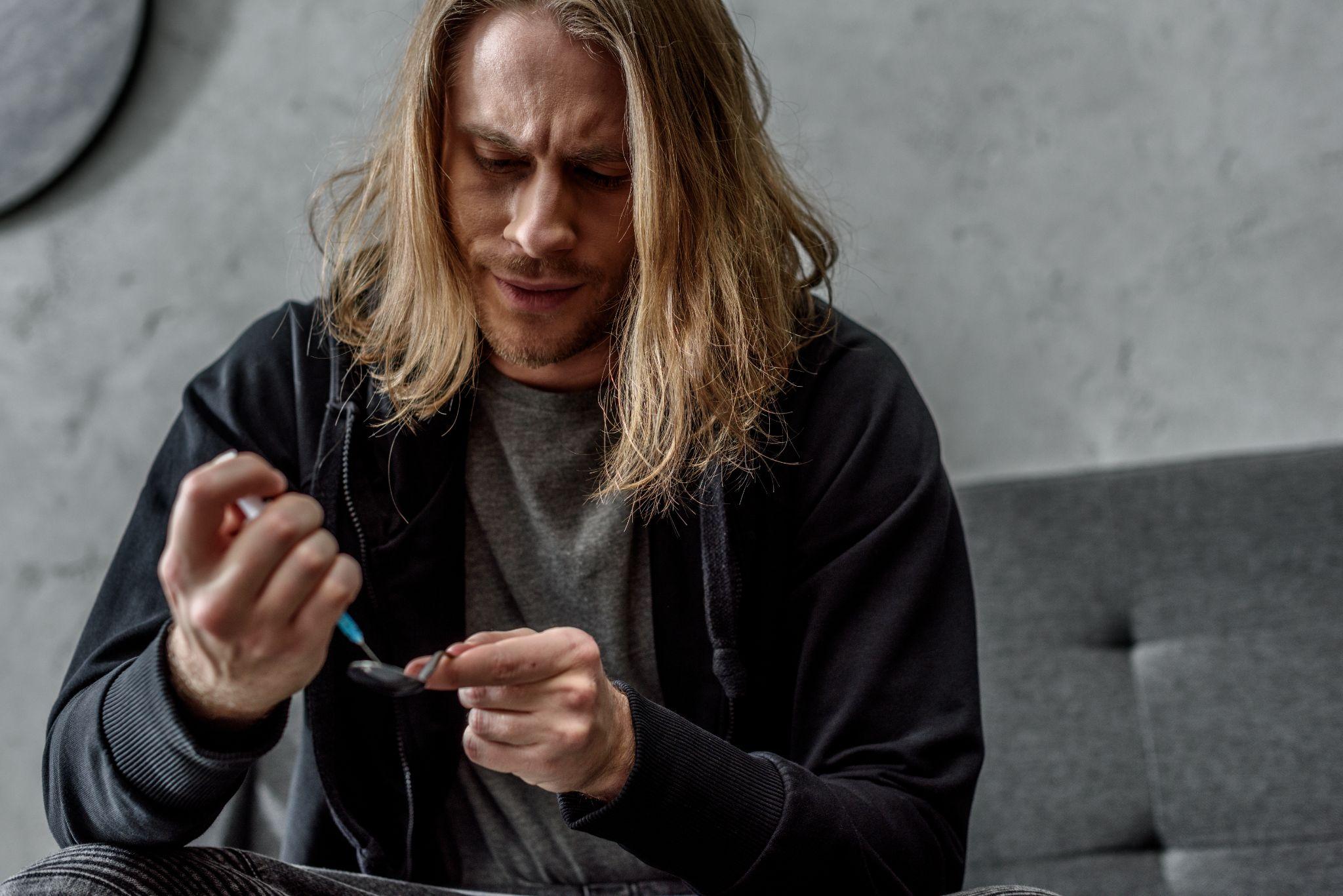Heroin addiction is a severe and life-altering condition that affects not only the individual using the substance but also their loved ones and the surrounding community. Understanding the signs, symptoms, and effects of heroin addiction is crucial for early detection and intervention, which can significantly improve the chances of recovery.
Learn about heroin and substance abuse through key signs and symptoms, tailored for individuals who may be worried about their own drug use or that of someone close to them.
Impact of Heroin Abuse and Addiction
Heroin, an opioid drug derived from opium poppy plants, is a highly addictive substance that manipulates the brain’s natural pleasure systems and can quickly lead to dependency. Initially, users may find heroin provides a feeling of warmth, well-being, and detachment from pain, both physical and emotional.
However, as tolerance develops, the user requires increasing amounts of the drug to achieve these effects, which can quickly escalate to an all-consuming addiction. 1
In 2021, the National Institute on Drug Abuse published its Heroin Research Report with findings from the 2021 National Survey on Drug Use and Health: 2
- Approximately 1.1 million people aged 12 or older reported using heroin within the past 12 months in the United States.
- About 1 million people aged 12 or older were estimated to have struggled with addiction to heroin (heroin use disorder) during the same timeframe.
These statistics underscore the significant long-term health challenge that heroin addiction continues to pose, affecting over a million people in the United States and highlighting the critical need for effective treatment and prevention strategies.
Recognizing Heroin Addiction
Heroin addiction is an overwhelming reality for many, and it presents through a range of signs that can be physical, behavioral, and psychological. Each heroin addiction sign alone may not indicate an addiction, but the cumulative effect of several can be a strong indicator of opioid use disorder (OUD). Understanding these signs can help in identifying whether someone is struggling with heroin addiction.
Recognizing the symptoms of heroin addiction involves observing drastic changes in an individual’s behavior, appearance, and health status:3
Behavioral Signs
- Increased secrecy and deception. Engaging in secretive behaviors or lying about whereabouts can indicate issues like drug use.
- Social withdrawal. Individuals may pull away from family and friends, often to hide their drug use or because of their changed priorities.
- Neglecting responsibilities. There might be a noticeable decline in performance at work or school and a disregard for home and family responsibilities.
- Financial problems. Unexplained borrowing of money or the sudden emergence of financial troubles may be signs of spending money on drugs.
- Changes in social circles. Associating predominantly with other known drug users or a complete change in friendship groups.
- Neglecting hobbies. A loss of interest in activities that the person once enjoyed.
- Poor decision-making. Engaging in risky behaviors, such as driving under the influence, can be a significant warning.
- Mood swings. Extreme and sudden changes in mood, from elation to fatigue, can be a direct result of drug use or its effects on the brain.
- Altered sleep patterns. Heroin use can lead to insomnia or an excessive need for sleep at odd times.
- Development of withdrawal symptoms. Symptoms such as shaking, nausea, irritability, and anxiety when unable to use heroin.
Physical Signs
- Marked changes in appearance. This can include a lack of personal hygiene, poor grooming, and disheveled clothing.
- Physical health declines. Notable weight loss, constricted pupils, and signs of injections like marks on the arms.
- Possession of paraphernalia. Items like needles, spoons, and lighters may be found among the possessions of someone using heroin.
- Nosebleeds and respiratory issues. Frequent nosebleeds can occur from snorting heroin, and respiratory depression is common in users.
Treatment Options for Heroin Addiction
Heroin addiction is a complex disorder, but several effective treatment methods can help individuals overcome dependence and reclaim their lives. Treatment usually involves a combination of medical and psychological approaches tailored to the individual’s needs.
Detoxification and Medical Management
The first step in treating heroin addiction typically involves detoxification, which is the process of allowing the body to rid itself of the substances to which it has become addicted. This stage can be challenging due to the withdrawal symptoms that accompany it, such as nausea, shaking, and severe anxiety.
To manage these symptoms and ensure safety during detox, medical professionals often administer medications. With medication-assisted treatment (MAT), methadone, buprenorphine, and naltrexone are commonly used to help reduce cravings and withdrawal symptoms, allowing for a smoother transition into sobriety.
Behavioral Therapies
Following or in conjunction with detox, various forms of behavioral therapies are employed. Cognitive behavioral therapy (CBT) is widely used to help individuals in recovery understand the thoughts and situations that trigger their drug use, develop coping mechanisms, and devise strategies to avoid and manage those triggers.
Family therapy can also be significant, providing support and education to family members, helping them to understand addiction dynamics, and teaching ways to support their loved ones effectively.
It is important to mention any family history of substance abuse or family history of mental illness to your healthcare professional. It is also necessary to make healthcare professionals aware of your own personal history of mental illness.
Holistic and Alternative Therapies
In addition to traditional treatment methods, holistic approaches can play a pivotal role in the recovery process. These may include mindfulness and meditation, yoga, and acupuncture, which help individuals manage stress and emotions that could potentially trigger relapse. Nutritional counseling and physical fitness programs also support overall well-being and aid in rebuilding a healthy body and mind.
Begin Your Sobriety From Heroin With Lumina Recovery
Recognizing the signs of heroin addiction is the first step in confronting this challenging issue. For those who suspect they or someone they know may be struggling with heroin use, it’s important to seek professional help immediately. Heroin is a powerful drug, and its addiction requires comprehensive medical and psychological intervention.
Lumina Recovery’s heroin and opioid addiction treatment programs provide detox and therapy options including family therapy, cognitive behavioral therapy (CBT), and holistic activities to overcome this addiction and lead a healthy, drug-free life.
If you recognize any signs of addiction in yourself or a loved one, don’t hesitate to reach out for help today.
Sources:



